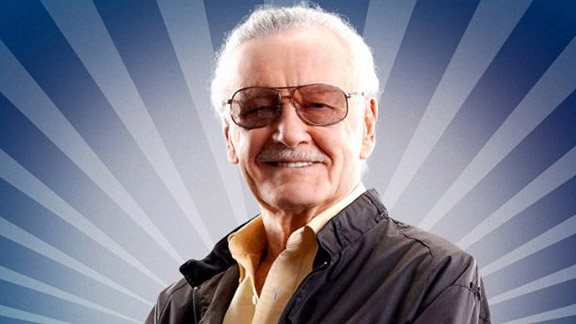»On a personal note
By Charly SHELTON
We all knew this was coming, but it doesn’t make it any easier. Comic book writer, editor, and publisher Stan Lee was 95 when he died on Monday. In recent interviews he sounded less like our old Generalissimo and more like a doddering old guy. According to his comic writing protégé, longtime friend and the man to whom Stan bequeathed Spider-Man when he retired, Roy Thomas, Stan “didn’t have the energy he had the last time I saw him.” But despite that, he was still walking and getting around on his own and talking about doing more Marvel movie cameos.
Stan Lee was more than a childhood icon, more than a comic book writer, and more than many will give him credit for. He created an idea. Before Stan Lee and Jack Kirby, comics were dying. They were cut-and-dried little amusements for kids and occasionally GIs who were overseas and homesick. They didn’t handle real stories, they didn’t have that same punch found today. And this is what Stan rallied against in the 1950s, that comic books were creatively boring. He had made up his mind to quit and have a go at writing the next great American novel. But his wife Joanie convinced him to write one more comic book the way he wanted it. Since he was already going to leave, he decided to just do what he wanted; who cares if he’s fired?
So Stan wrote and Kirby illustrated their perfect comic – Fantastic Four #1, debuting in November 1961. Up to that time, comics specifically tried to stay away from dealing with real issues so as not to influence the supple young minds of their readers. That all changed with Fantastic Four #1.
This team’s success paved the way for superheroes like Iron Man, Captain America (which was published in the 1940s but was brought back to life in the new age), Hulk, Ant Man and Spider-Man. These characters dealt with real issues like alcoholism, drug addiction, racism, bullying and more, giving kids a wider perspective on the subject and allowing them to be better informed. Gone were the days of meaningless amusements – comics had become an artform and helped their readers, now kids and adults alike, to navigate the treacherous social waters of the 1960s, ’70s and beyond. Stan Lee had created the idea that these silly little characters they called superheroes could be actual heroes and role models to the world, in ways going beyond the catchphrase platitudes of the previous generation.
In the back of each issue, Stan would write a column reflecting on the issues of the day and the subject in certain comic books. Stan’s Soapbox was always a favorite of mine. My writing style is very much a hybrid of my two favorite writers’ styles – Stan’s Soapbox and the stories of Mary O’Keefe, my mother. The conversational tone of Stan’s Soapbox was easy to read without skimping on the emotional punch or facts.
He wrote about handling bullies, standing up for what’s right and giving every person a fair shake.
“Let’s lay it right on the line,” he wrote. “Bigotry and racism are among the deadliest social ills plaguing the world today … The only way to destroy them is to expose them – to reveal them for the insidious evils they really are … It’s totally irrational, patently insane to condemn an entire race – to despise an entire nation – to vilify an entire religion … Sooner or later, if man is ever to be worthy of his destiny, we must fill our hearts with tolerance.”
Stan took on issues at a time when this opinion wasn’t a commonly held idea. When the above was published in 1968, the year Dr. Martin Luther King Jr. was assassinated, this was still on the cusp of acceptance. But reading columns like this in the early 1990s, it still rang true to me at first exposure. His columns, his plot lines, his sympathetic dialogue given to characters, all came together over the years to help form a bedrock of my belief system and values. Chief among them is a line that is often repeated but, I feel, is rarely lived by for most people: “With great power, there must also come great responsibility.” I live my life by that mantra because it is something that impacted me as a child, just as it impacted my parents reading comics as kids and they have instilled it within me as well.
Stan’s last visit with Roy Thomas came just 48 hours before his passing. According to Thomas’ manager John Cimino, the last words Stan said to Roy were “Take care of my boy, Roy.” His boy is Peter Parker, the Amazing Spider-Man, who was always the character closest to Stan’s heart. It is nice to know that, even in the end, the one who meant the most to Stan was always the one who means the most to me.
Thanks for everything, Stan. Excelsior.

